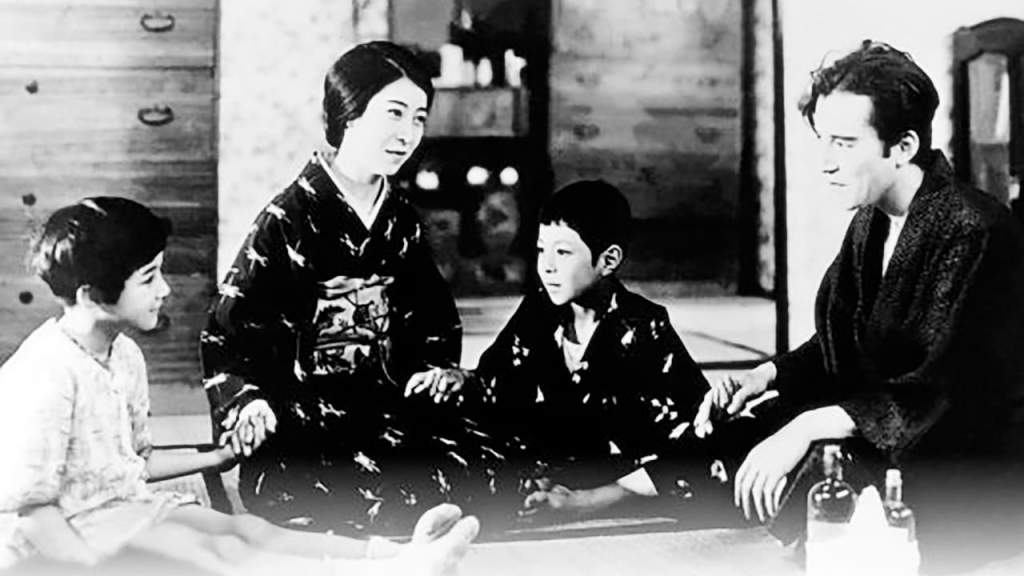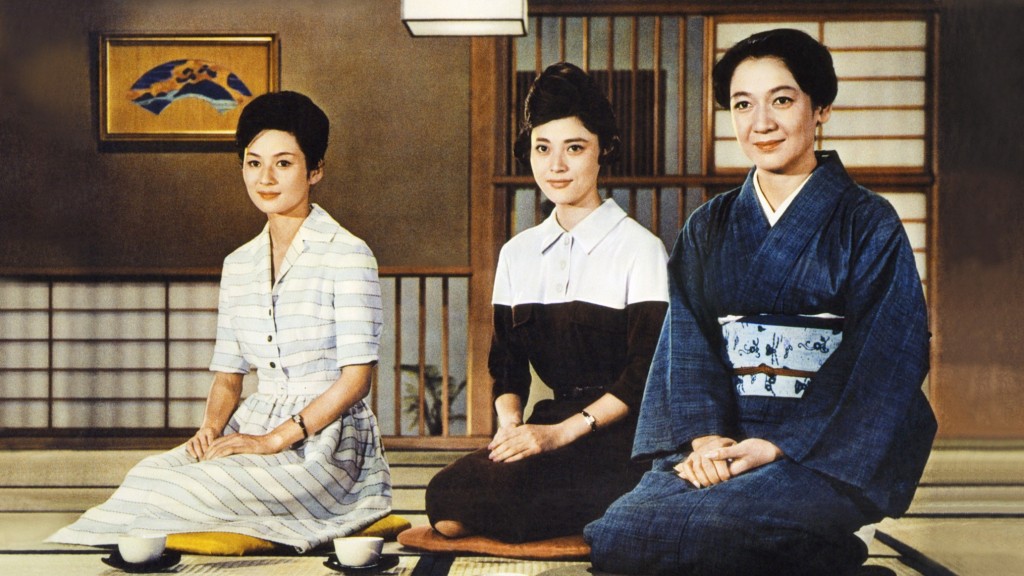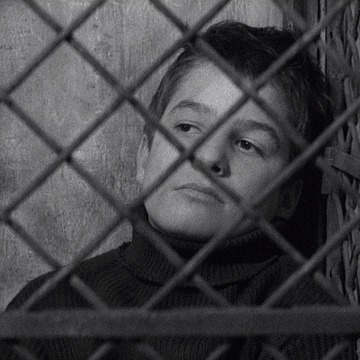Coming up at midnight tonight is a chance to see Tokyo No Korasu (“Tokyo Chorus”), Ozu’s 1931 silent feature about a young rebel facing unemployment with three children to feed.

BFI’s synopsis: “Social comedy telling the story of a family man who is dismissed from his insurance company when he sides with a colleague in a dispute against the management. After an unsuccessful search for work and having been forced to pawn his wife’s kimonos he accepts an offer to work in a friend’s curry restaurant.”
In the past, movies like this were hard to see. This particular film wasn’t released in the US until 1982. But now it has a Criterion release, and you can also watch it (though not in as good a quality transfer as Criterion’s) on the Internet Archive.
It’s also showing later this week as part of the Harvard Film Archive program “Ozu 120: The Complete Ozu Yasujiro” which started on June 9 and runs through August 13.
An embarrassment of riches.

Ozu’s one of my favorite directors, though that’s hardly an outré opinion. His Tokyo Story (Tokyo monogatari) (1953) appeared in Sight & Sound’s list of the greatest films of all time in the first list after it was released and has climbed steadily in critical estimation since. In the 2022 version of the S&S lists, it was ranked #4 in both the overall list and the poll of directors. If you combine the various serious critical appraisal lists for the last 50 years, the only films that top it as contenders for “greatest film” are Citizen Kane, Vertigo, Rules of the Game (La Régle du Jeu), and 2001: A Space Odyssey.
I have yet to see an Ozu film that didn’t seem a completely achieved work to me. I adore his cheeky comedy, Ohayo (Good Morning)—it’s one of the films I use to turn younger kids on to watching subtitled foreign films. I tend to try not to see movies like this on a small screen for the first time, but I’ve never had a chance to see Tokyo No Korasu in a theatre before. But I still don’t have access to TCM, so I may just have to watch this on Criterion. But wow, I wish I could attend all the screenings at the Harvard Film Archive.
Two Ozu films are available to stream for free on Kanopy: Tokyo Story and Floating Weeds (1959). There’s also an episode on Ozu and Kurosawa as part of the “Understanding Japan: A Cultural History” course produced in conjunction with the Smithsonian.
There’s been a lot of good writing on Ozu, as you’d expect with a director with that kind of critical regard and such a large body of work:
- Ozu’s Tokyo Story – edited by David Desser, part of the Cambridge Film Handbook series
- The Cinema of Ozu Yasujiro: Histories of the Everyday – by Woojeong Joo
- Reorienting Ozu: A Master and His Influence – edited by Jinhee Choi
- Transcendental Style in Film: Ozu, Bresson, Dreyer – by Paul Shrader
- Ozu: His Life and Films – by Donald Richie, older but the basis for much of the subsequent critical discussion and a very good read.
You can of course find plenty of Ozu on Amazon, particularly in Criterion Collection releases, including Tokyo Story and Good Morning (Ohayo). There’s also stuff to stream including Good Morning and Early Summer.
Some of the other things on TCM this week that are particularly appealing include
- Carefree (1938) – one of the best Fred Astaire / Ginger Rogers pics
- Ocean’s Eleven (1960) – the original, with Peter Lawford, Frank Sinatra, Dean Martin
- Jules and Jim (1962) – Truffaut
- The Candidate (1972) – Robert Redford
- Shaft (1971)
- The Umbrellas of Cherbourg (1964)
Filed under: Movies, Classic Films, Film, Japan, Japanese movies, TCM




